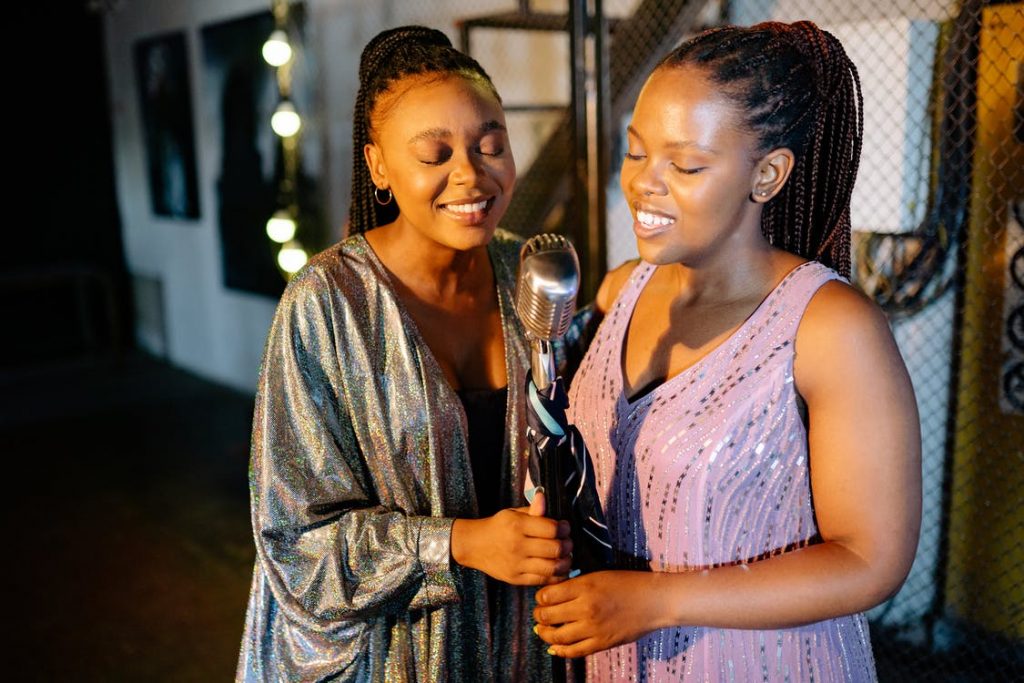The 1980’s saw a significant growth in the ever evolving South African music scene with an array of new artists and bands flourishing like never before.
Bubblegum Music
An unadulterated style of South African pop music, Bubblegum was uniquely based on vocals with overlapping call-and-response lyrics combined with the use of electronic keyboards and synthesizers.
The first major bubblegum star was Dan Tshanda of the band Splash, followed closely in popularity by Chicco Twala whose claim to fame was his politically oriented lyrics and a collaboration with the famed Mzwakhe Mbuli.
During the late 1980’s Yvonne Chaka Chaka rose to stardom with her 1984 hit ‘I’m in Love With a DJ’ being the first major bubblegum hit. Her popularity continued well into the 1990’s with her first noteworthy rival being the late Brenda Fassie who often found herself at the heart of numerous (often drug related) scandals.
Alternative Rock and Afrikaans
Alternative rock bands such as The Usual and Scooter’s Union became increasingly more popular during the early 1980’s. The development of the local music scene led to a surge of bands ranging from the illustrious Tribe after Tribe to the lesser No Exit.
The South African alternative rock scene became more mainstream with two principal bands, Asylum Kids and Peach enjoying chart success as well as releasing highly commended albums.
If one artist can be singled out in terms of contributing to this era it would undoubtedly be James Phillips who was involved with a number of prominent bands such as Corporal Punishment, Cherry Faced Lurchers as well as his Afrikaans alter ego, Bernoldus Niemand. It was with this character that James managed to cross the language rift and converted a large number of Afrikaans musicians to the same punk-ethnic culture that had inspired him.
The only Afrikaners to enjoy substantial commercial fame during this period were rock singer/songwriter Anton Goosen and Bles Bridges who was often classified as an imitation of the American lounge singer Wayne Newton.
Reggae Music
One of the most significant and undying changes to the South African music industry was the introduction of reggae from Jamaica. Following in the footsteps of international luminaries Bob Marley and Peter Tosh, Lucky Dube became South Africa’s first principal reggae star. Towards the end of the 1980’s Jamaican music started moving more towards raga, an electronic style more influenced by kwaito than reggae.
The ‘Voëlvry’ movement
During the 1980’s Afrikaans music experienced a renaissance as the Voëlvry movement reflected a new Afrikaans artistic counter-culture fundamentally hostile to the values of the conservative Afrikaans population. Fronted by the singer/songwriter Johannes Kerkorrel, the movement also included Bernoldus Niemand (aka James Phillips) and Koos Kombuis.
The movement tapped into a mounting dissatisfaction of the Apartheid structure amongst white Afrikaans speakers, and thus represented the musical branch of opposition that was paralleled by literature and the arts.
International Interest
Due to an unforeseen demand from their fans the original Mahotella Queens line-up reunited with Mahlathini and the Makgona Tsohle Band in 1983.
During 1986 Ladysmith Black Mambazo made their international debut on Paul Simon’s Graceland album after which they not only went on to tour the world but also collaborated successfully with various Western musicians. The success of the Graceland album not only boosted the Mambazo popularity but also paved the way for other South African acts such as Moses Mchunu, Ray Phiri and Stimela.
Johnny Clegg started his career during the 1970’s but became prominent during the 1980’s as the foremost white musician playing traditional African music, accomplishing success in France as “Le Zoulou Blanc’ (The White Zulu).
The 80’s also saw a revival of rock and roll with the likes of bands like The Helicopters, Petit Cheval, Tellinger and Sterling.
As the 1980’s grew to a close many an artist and band continued to prosper well into the 90’s and even the new millennium. The 80’s it seemed, was merely a preview of what was yet to come in the South African music industry and without a doubt exceeded all expectations.
- How to support your child’s mental health: A parent’s guide - February 1, 2025
- Can data centers stay green? Balancing digital growth with clean energy - January 26, 2025
- Why Blockchain could be end of high fees, delays in global payments - January 17, 2025
- Abridge AI: Silent scribe transforming healthcare interactions - January 5, 2025
- What makes quantum AI a game-changer for technology - December 25, 2024
- How businesses must adapt to evolving cyber threats in 2025 - December 4, 2024
- How vaping stiffens blood vessels and strains lungs: Study - November 26, 2024
- OpenAI Codex or Google Codey? Finding the perfect AI for your code - November 18, 2024
- What Google’s Project Jarvis means for future of digital interaction - October 28, 2024
- 11 tips for creating engaging ad content - July 8, 2024


